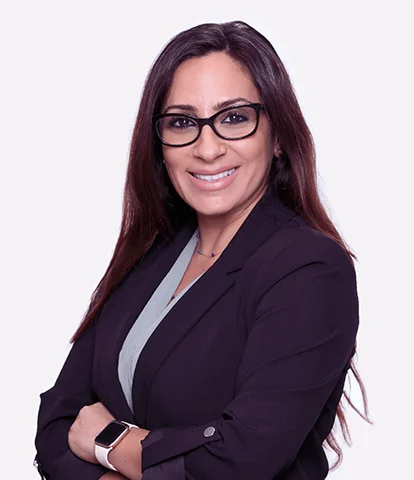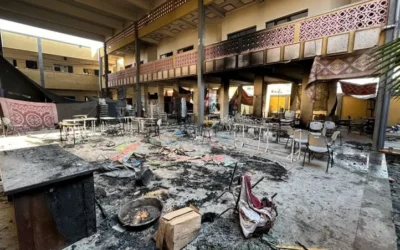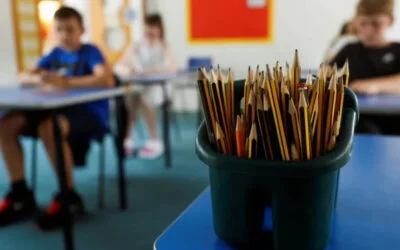Empowering the Next Generation: Green Education is Key
“If you want 10 years of prosperity, grow trees. If you want 100 years of prosperity, grow people.’ This ancient Chinese proverb remains relevant to humankind’s future, even as we struggle against an existential environmental threat. The challenge underscores the prism that the journey toward sustainability requires more than technological advancements and financial investments; it demands an informed and engaged populace.”
The youth are at the forefront of this crucial task, their enthusiasm and inherent curiosity about the world making them pivotal contributors to building a sustainable future. However, a glaring deficit in environmental literacy poses a significant challenge requiring a collective and strategic response.
As governments and the private sector make substantial financial investments into transition toward a net-zero emissions future, it is imperative to recognize that their success relies on a robust human capital foundation. Merely channeling billions into technological advancements and infrastructural changes is insufficient if there is a lack of corresponding investment in nurturing the minds and capabilities of the next generation.
The call to nurture human capital is not merely a plea but a pragmatic recognition of the return on investment (RoI) that sustainable education yields. When educational strategies align with economic sustainability, the result is a pipeline of skilled individuals ready to contribute toward implementing sustainable solutions. This alignment is essential for the success of climate initiatives and for the long-term benefit of society.
Education is an investment in the world’s future leaders. By instilling environmental literacy in the younger generation, we shape the minds that will lead nations, raise families, and drive communities. The RoI in their education ensures a generation committed to upholding and advancing the sustainable agenda.
In educating the youth about environmental issues, we are sowing the seeds for a future where climate change mitigation is not just a policy but a way of life. The knowledge and awareness imparted today will empower these young minds to become advocates and contributors in the fight against climate change.
As COP28 drew to a close late last year, the global community recognized that the success of environmental initiatives rests on technological advancements and the shoulders of environmentally literate and empowered youth. Investments in education today will yield dividends for generations to come. The alignment between educational strategies and economic sustainability is not just a strategy; it is an ethical imperative that ensures a harmonious and sustainable future for our planet.
‘By pooling resources and expertise, organizations can create comprehensive and inclusive educational materials that can be freely accessed by educators worldwide. This shared knowledge can empower educators and students, fostering a global community committed to environmental stewardship’
The urgency of the environmental crisis calls for a paradigm shift in how we approach education. Environmental literacy should not be an optional addendum to the curriculum but as a core component of every educational institution’s mission. Integrating sustainability principles across disciplines ensures that every student has the knowledge and skills to navigate a world battling environmental challenges.
Furthermore, addressing the current barriers and challenges to environmental literacy is crucial for its widespread adoption. One significant barrier is the resistance to change in educational systems that often sideline holistic and experiential learning about environmental issues. To address this, educational institutions should embrace innovative pedagogical approaches that encourage critical thinking, problem-solving, and real-world application of knowledge.
Another challenge is the unequal access to quality education. In many parts of the world, especially marginalized communities, students lack access to resources and educational opportunities. Bridging this gap requires collaborative efforts between governments, non-profits, and private organizations to ensure that environmental education is accessible to all, regardless of socio-economic status or geographical location.
The digital divide poses challenges to the widespread integration of technology. Moreover, a lack of education or digital literacy can prevent individuals from effectively using it. Technology and internet access costs can be prohibitively high for individuals in lower-income brackets. In some areas, mainly rural or remote regions, the necessary infrastructure for high-speed internet and other communication technologies is lacking, hindering technology integration.
Organizations can collaboratively develop and share open-access educational resources focused on environmental literacy. By pooling resources and expertise, organizations can create comprehensive and inclusive educational materials that can be freely accessed by educators worldwide. This shared knowledge can empower educators and students, fostering a global community committed to environmental stewardship.
Additionally, organizations can offer mentorship programs, internships, and educational outreach initiatives to support schools and communities in building their environmental literacy programs. By connecting with local schools and educational institutions, organizations can provide real-world insights, share best practices, and inspire the next generation of environmental leaders.
In return, organizations can offer to collaborate on research projects, share data, and provide funding for educational initiatives. By offering financial support, expertise, and resources, organizations can contribute to developing a robust and sustainable educational infrastructure focused on environmental issues.
Addressing the funding challenges in the climate emergency requires a holistic approach that includes investing in environmental literacy. The global community must recognize that the success of climate initiatives depends on technological advancements and cultivating an environmentally literate and empowered youth.
Organizations can play a crucial role in building a sustainable future by breaking down barriers, collaborating on educational resources, and offering support to schools and communities. Environmental literacy is not just an academic goal but an ethical imperative shaping the leaders and citizens who will drive positive change for our planet.
The road ahead is challenging, but it is also filled with opportunities. By investing in environmental literacy, we invest in a sustainable but also equitable, resilient, and prosperous future. At COP28, it was collectively affirmed that the most critical investment we can make for our planet’s future is in our people—their education, empowerment, and ability to lead the way in creating a sustainable world for future generations. The task is to keep the good work going and gather adequate momentum.
Malakeh El Haj is the Vice President for Knowledge & Innovation at the Abdulla Al Ghurair Foundation.



